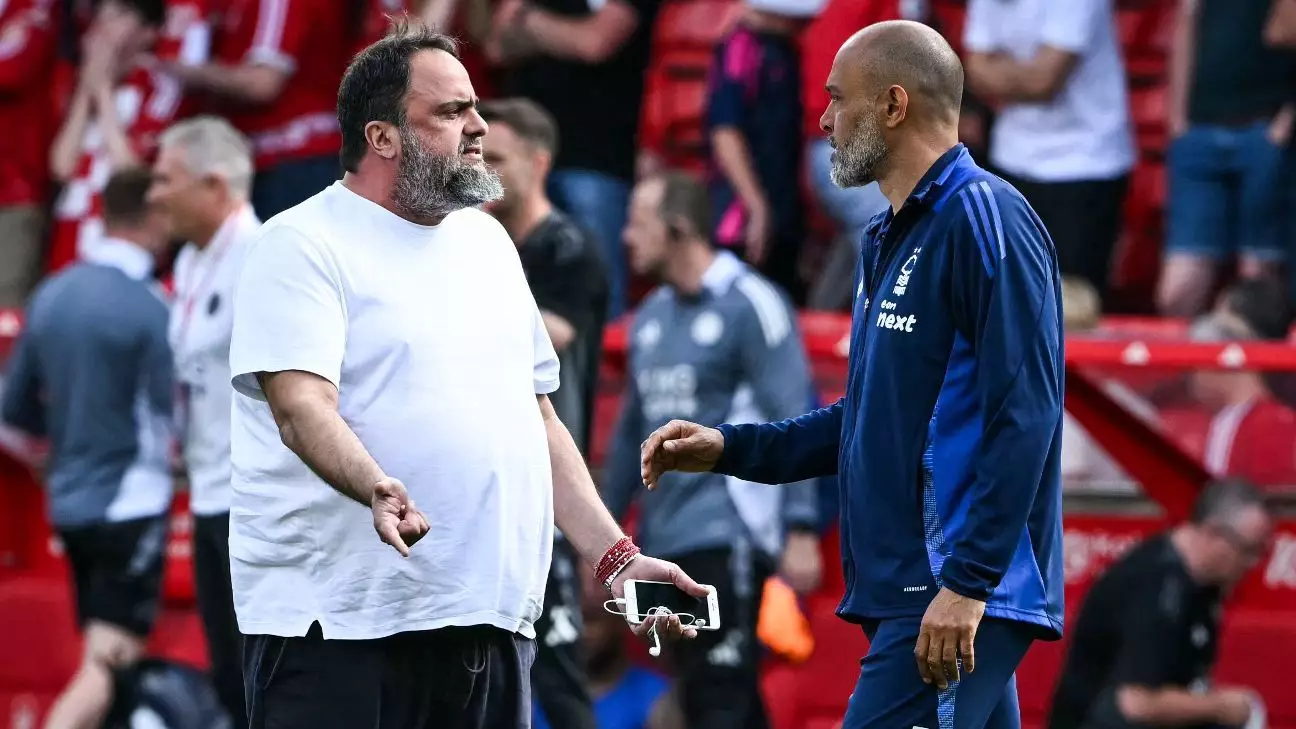In the world of football, emotions often run high, but few moments encapsulate the essence of humanity in sport like the recent incident involving Nottingham Forest’s owner, Evangelos Marinakis. After a tense 2-2 draw against Leicester City, which hindered Forest’s ambitions for Champions League qualification, Marinakis’ instinctive reaction to a player’s distress brought not only him but the entire team dynamic into sharp focus. What transpired on that pitch wasn’t merely a visceral reaction to a game gone awry; it was an illustration of deep-rooted care and emotional investment.
The incident was sparked by the sight of Taiwo Awoniyi, who had just collided with the post, laying in apparent agony on the pitch. Sporting a visceral expression of worry and frustration, Marinakis’ rush onto the field has been labeled as an act of leadership and concern, rather than an expression of dissent towards manager Nuno Espirito Santo. Within the competitive sphere of football, such emotional displays can be both refreshing and revealing, as they strip away the cold veneer of professional rivalry, exposing the real human connections that underpin team sports.
Behind the Scenes: The Owner’s Perspective
The club’s clarification on Marinakis’ behavior paints him as an involved owner deeply concerned with the welfare of his players. “His reaction was one of deep care, responsibility, and emotional investment in one of our own,” they noted in an official statement. This sentiment not only reflects Marinakis’ affection for Awoniyi but also conveys an important message about the necessity of empathy in sports leadership. Rather than prioritizing the spectacle or merely the outcome of the match, Marinakis demonstrated that the health and safety of players is paramount.
This was more than just an isolated incident. It speaks directly to the values of Nottingham Forest Football Club. In an era when the lines between business and sport can sometimes become blurred, Marinakis’ decision to prioritize player welfare over protocol is a poignant reminder. His actions signify a fundamental belief that a club is more than a collection of players and staff; it’s a living entity with shared values, aspirations, and an unwavering commitment to one another.
The Aftermath: What This Means for the Team
Awoniyi’s subsequent abdominal surgery underscores the seriousness of the situation and highlights the precarious nature of player health in professional sports. Fans often equate their allegiance to teams with the performance on the field, neglecting the human stories that unfold behind the scenes. Marinakis’ promptness in attending to the situation serves as a rallying cry not just for players but for supporters to recognize the collective investment that fuels a team’s journey—beyond mere statistics or league standings.
In essence, this incident has sparked a deeper conversation about the relationships within sports organizations. It emphasizes the importance of witnessing the signs of distress and acting upon them with urgency and empathy. Marinakis’ authentic leadership not only enforces the much-needed compassion within sports but also inspires a culture where each player feels valued and protected. His response exemplifies that in football, as in life, sometimes the most significant victories stem from the moments we show we care.

